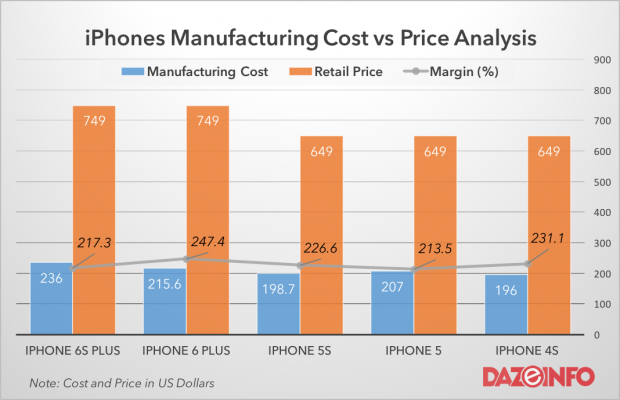Anonymous hacktivist activities have gained notoriety for their boldness and unpredictable nature, often making headlines with their cyber interventions and social commentary. This covert collective has engaged in a variety of disruptive protests, notably targeting institutions like the New York Stock Exchange (NYSE) to challenge the status quo. Recently, speculation arose that their latest operations were responsible for the mysterious shutdown of the NYSE, despite official claims indicating technical issues were to blame. With a seemingly ominous tweet suggesting potential trouble for Wall Street, Anonymous has effectively blurred the lines between social activism and cyber attacks, inciting debate over the impact of hacktivism on financial markets. Furthermore, their efforts have sparked a wave of discussion surrounding the ethical boundaries of digital dissent, making them a subject of significant interest in today’s online landscape.
The activities of this elusive group of digital activists, often referred to as hacktivists, have sparked intrigue and controversy across the globe. Engaging in acts of civil disobedience in cyberspace, they challenge traditional power structures and advocate for various social causes. The recent events surrounding the NYSE have drawn attention to their unconventional methods, where calls for protests coincide with cryptic social media messages that stir speculation about potential cyber interventions on Wall Street. Such behavior encapsulates the essence of modern protest, where the lines between activism and cyber warfare continue to blur, highlighting the profound impact of their initiatives on both public perception and governance. The intersection of technology, finance, and activist strategy marks a notable shift in the landscape of social movements today.
The Anonymous Hacktivist Movement: A Brief Overview
Hacktivism has emerged as a powerful tool for those seeking to effect change through digital means, and at the forefront of this movement is the group Anonymous. Known for their distinctive Guy Fawkes masks and a loose affiliation of members, Anonymous has engaged in various actions that challenge governments and corporations alike. From targeting ISIS websites to calling attention to social injustices, their activities have significantly shaped the landscape of political protests in the digital age. The group utilizes anonymity to protect its members, allowing them to engage in high-profile cyber operations without fear of retribution.
The impact of Anonymous on the global stage cannot be overstated. Their methods blend elements of traditional activism with the innovative capabilities of technology, leading to movements that resonate across the globe. As they take action against what they perceive as injustices, their presence is increasingly felt in major events, such as the protests at Wall Street. The agility and anonymity that enable them to mobilize support quickly are instrumental in amplifying their voice during critical moments.
Anonymous and the NYSE Shutdown: Speculation and Reality
The recent shutdown of the New York Stock Exchange (NYSE) raised eyebrows and spawned speculation linking the event to Anonymous activities. While NYSE officials dismissed allegations of a cyber attack, the timing of Anonymous’ cryptic tweets heightened intrigue. Just before the Wall Street closures, the group tweeted a message indicating potential turmoil for the market, stirring concern among traders. Such speculation sparked debates about the boundaries of hacktivism and the weight of Anonymous’ influence in the financial sector.
Though officials reiterated that the NYSE shutdown was due to a technical glitch rather than a cyber attack, the coinciding messages from Anonymous generated significant public discourse. The hacktivist group has a history of targeting financial institutions, underscoring the potential for their actions to move beyond mere rhetoric into impactful digital insurrection. The NYSE incident brings to light the necessary dialogue around cybersecurity and the ever-evolving tactics used by groups like Anonymous.
The Impact of Hacktivism on Financial Institutions
Hacktivism has established itself as a formidable force in the realm of political and corporate accountability. Financial institutions, being pivotal players in the economy, have become prime targets for hacktivist groups like Anonymous. The decision to protest at the NYSE, reflected in their social media activities, showcases how these groups leverage online platforms to rally mass support for their causes. Such actions not only disrupt expected operations but also draw public attention to systemic issues within financial markets.
Moreover, the implications of these cyber protests extend beyond immediate business disruptions. They challenge the longstanding trust in institutions that are foundational to economic stability. When groups like Anonymous engage in high-profile attacks or express their grievances through social media channels, it creates a ripple effect that can lead to heightened scrutiny and calls for reform. Subsequently, financial institutions must remain vigilant in guarding against the potential fallout from hacktivist activities.
History of Anonymous and Wall Street Interactions
The history of Anonymous’ interactions with Wall Street provides a fascinating narrative of how digital activism can intersect with traditional financial practices. One notable incident occurred in 2011 when Anonymous declared their intention to ‘destroy’ the NYSE in response to perceived economic injustices and corporate greed. This marked a turning point in the relationship between hacktivism and the financial sector, illustrating how leveraging anonymity to mobilize mass protests can pressure financial institutions to address their practices.
Since that time, Anonymous has continued to evolve its tactics, targeting multiple institutions while calling for demonstrations against financial malpractice. Their notable ability to switch between nonviolent protests and impactful digital actions demonstrates the fluidity of their approach, making them a formidable entity in the ongoing discourse surrounding economic injustice. Events like the NYSE shutdown serve as reminders of the persistent tensions between established financial systems and emerging forms of digital activism.
Cyber Attacks and Anonymous: A Volatile Relationship
The relationship between cyber attacks and the activities of Anonymous has always been a subject of intrigue and speculation. With a reputation for engaging in distributed denial-of-service (DDoS) attacks and website defacements, Anonymous has been at the center of numerous high-profile incidents disrupting business as usual. Their operations can have extensive ramifications not just for targeted entities but also for broader economic systems, especially when major financial institutions like the NYSE find themselves in the crosshairs.
Despite the controversies that surround their actions, it is imperative to consider the motivations driving Anonymous and similar groups. They often justify their tactics as means to highlight injustices and hold powerful entities accountable for their actions. The call for protests at Wall Street, coupled with threats of cyber attacks, suggests a complex strategy aimed at leveraging both digital and physical realms to effect change.
Anonymous: Tweets and Their Influence on Market Sentiment
In the age of social media, the power of a tweet can significantly influence public perception and market sentiment. Anonymous has harnessed this power effectively, using Twitter to communicate provocations and mobilize support for their causes. Tweets that hint at potential market troubles can create panic within trading environments or lead investors to reconsider their strategies, as seen with the recent speculation surrounding the NYSE shutdown. The ability to distribute information quickly allows Anonymous to operate more like a media outlet than a traditional activist group.
Moreover, the strategic use of hashtags and mentions in their messages amplifies their reach and fosters community engagement. By calling for protests and discussing possible impacts on Wall Street, Anonymous creates a sense of urgency that can ripple throughout the financial markets. This highlights the intersection of financial markets with social media narratives, and how narratives pushed by Anonymous can sway investor confidence and reactions.
The Future of Hacktivism and Financial Markets
As society becomes increasingly digital, the intersection of hacktivism and financial markets is likely to evolve further. The anonymous nature of these groups presents both risks and opportunities for stakeholders in the financial industry. Emerging technologies such as blockchain and increased reliance on digital transactions mean that the consequences of hacktivist actions can be profound, leading to broader discussions about privacy, security, and ethical practices in finance.
Looking ahead, it will be vital for financial institutions to develop robust cybersecurity measures and gain an understanding of the motivations of groups like Anonymous. The dynamic nature of hacktivism means that staying ahead of potential threats involves not just technology, but also transparency and accountability in business practices. As Anonymous continues to advocate for social change, their impact on financial markets will undoubtedly incite both fear and resolve among traditional institutions.
Financial Institutions Responding to Hacktivist Threats
In light of increasing threats from hacktivist groups like Anonymous, financial institutions are compelled to adapt swiftly and effectively. This need for resilience in the face of digital disruption has led to an evolution in cybersecurity strategies aimed at safeguarding against potential cyber attacks. Institutions must not only protect their operations but also monitor the social media landscape for emerging sentiments that may foreshadow larger movements or protests.
Additionally, institutions are now more aware of the need for transparency in their practices to counteract the narrative spun by hacktivists. Implementing policies that foster ethical practices, enhancing stakeholder communication, and responding to public concerns can serve as proactive measures to mitigate hacktivist influence. By adopting a comprehensive approach to engage with the public and courts of opinion, financial institutions can address the root causes of discontent that often drive hacktivist actions.
Navigating the Ethical Landscape of Hacktivism
Navigating the ethical landscape of hacktivism presents a unique challenge for both activists and institutions alike. As groups like Anonymous continue to redefine digital activism, issues of morality, legality, and impact come to the forefront. While hacktivists argue that their actions are necessary to fight against systemic injustices, financial institutions often view these as threats to their operations and integrity. This ethical dichotomy complicates discussions on freedom of expression, corporate responsibility, and the role of technology in activism.
As the conversation evolves, stakeholders in both worlds must engage in dialogue that moves beyond binary definitions of good and evil. Understanding the motivations and consequences of hacktivist actions will provide a pathway toward addressing systemic flaws in financial practices. This process can lead to more meaningful reforms and possibly even collaborative efforts that harness the energy of movements like Anonymous for constructive purposes.
Frequently Asked Questions
What was the impact of Anonymous hacktivist activities on the NYSE shutdown?
The Anonymous hacktivist activities were speculated to be linked to the NYSE shutdown on July 8, 2015, when they tweeted a message that hinted at a possible downturn for Wall Street. Although officials denied any hacking incident, the association with the group raised concerns and discussions about the influence of hacktivism on financial markets.
How do cyber attacks by Anonymous affect financial institutions like the NYSE?
Cyber attacks by Anonymous can create significant disruptions for financial institutions such as the NYSE. These activities can lead to public fear, provoke market volatility, and disrupt trading systems, as seen in the case of the NYSE shutdown. The mere threat or speculation of a cyber attack can lead to proactive measures by officials, affecting trading activities.
What are the historical examples of Anonymous hacktivism against Wall Street?
Historically, Anonymous has engaged in several hacktivist activities against Wall Street, including threats to ‘destroy’ the New York Stock Exchange in 2011. Their more recent actions, such as the cryptic tweets before the NYSE shutdown, exemplify how the group aims to challenge financial institutions and advocate for social and economic changes.
What did Anonymous tweet regarding the NYSE and its activities?
Anonymous tweeted messages implying their involvement with the NYSE shutdown, notably stating, ‘Wonder if tomorrow is going to be bad for Wall Street…. we can only hope.’ This tweet, along with a call for a protest at the NYSE, sparked rumors about their role in the incident and highlighted their ongoing influence in hacktivism.
What is the significance of the ‘Wall Street protest Anonymous’ campaign?
The ‘Wall Street protest Anonymous’ campaign represents the intersection of hacktivism and grassroots activism. By calling for protests at financial institutions like the NYSE, Anonymous seeks to draw attention to issues such as economic inequality and corporate greed, further amplifying their impact beyond digital means.
What is the relationship between Anonymous tweets and hacktivism impact on stock markets?
Anonymous tweets can significantly affect stock markets by influencing investor sentiment and creating uncertainty. Their messages, such as those preceding the NYSE shutdown, often lead to speculation and fear, causing swift reactions in market performance and trading activities.
Did Anonymous directly hack the NYSE during the recent shutdown?
No, U.S. officials and the NYSE confirmed that the shutdown was not due to a hacking attack. However, the speculation surrounding Anonymous’s involvement, fueled by their tweets, illustrates the group’s ongoing influence in the domain of hacktivism and its capacity to stir public sentiment regarding financial institution operations.
| Key Point | Details |
|---|---|
| Anonymity and Power | Anonymous hacktivist activities thrive on the power of anonymity, allowing them to engage in impactful political expressions. |
| Previous Activities | Anonymous has been involved in significant actions, such as taking down ISIS websites and issuing warnings to political leaders. |
| Recent NYSE Shutdown | The New York Stock Exchange experienced a significant shutdown, speculated to be influenced by Anonymous due to their tweets. |
| Official Response | U.S. officials and NYSE claimed that the shutdown was not due to hacking, citing a technical fault instead. |
| Impact of Tweets | Anonymous’ cryptic messaging on Twitter stirred market speculation, hinting at potential disruptive actions. |
| Connection to Past Events | This event resonates with past threats made by Anonymous against Wall Street and the NYSE. |
Summary
Anonymous hacktivist activities highlight the potential for significant cybersecurity impacts in the financial sector. The recent actions surrounding the NYSE shutdown demonstrate how a single group’s tweets can incite widespread speculation and concern in the market. While officials deny any direct links to a hacking attack, the influence of Anonymous continues to be felt, showcasing the power of social media in shaping public perception. As the group remains active, their unpredictable nature keeps financial markets on edge, reiterating the ongoing relevance of hacktivist movements today.








